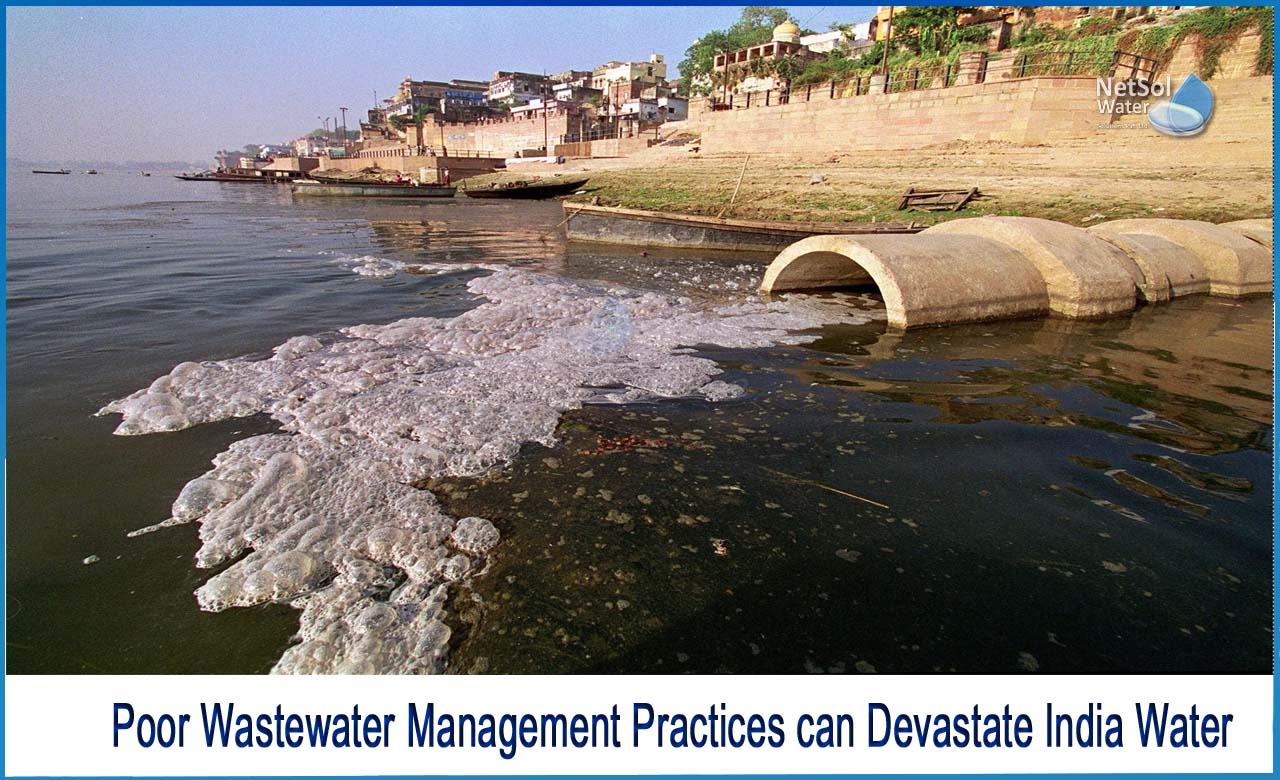Overview
When individuals in the world's most industrialised cities flush the toilet, they don't have to worry about where the wastewater goes next. If people think about it for a second, they know it is flushed into a sewer, most likely under the main road, where it joins larger and larger sewers until it reaches a treatment plant. Water is treated at this point and eventually returns to the wastewater system.
Perhaps the water will return to the same house years later, to be utilised in a sink or shower. But we don't have to be concerned about any of this. It just happens, and our sanitation systems, for the most part, work in unison with the rest of the ecosystem.
How Poor Wastewater Management practices can devastate India Water?
However, in many other countries, things are not so simple. Because there is no sewer system outside of core urban areas, large amounts of wastewater are simply not handled.
As a result, sewage waste is abundant in metropolitan areas, posing a serious threat to public health, dignity, education, and economic progress. For example: In the Indian city of Kochi, 80 percent of sanitary waste is released into the environment untreated.
Many households' septic tanks are linked directly to open drains in some places, allowing all of their waste to flow straight into the environment, often without inhabitants' knowledge.
Residents in other cities pay for their garbage to be collected by a vacuum tank operator, who subsequently dumps the material into a nearby river. The problem has been moved out of the house, yet it still exists in the environment.
Because of the thousands of openings in the rock layer, groundwater is subject to contamination. Poorly constructed facilities leach their contents into the soil, and informal pit emptiers pour sanitary waste into open drains and aquatic bodies: both major contributors to recent cholera epidemics that killed a large number of people.
The world is far behind schedule on all six Sustainable Development Goals, with poor sanitation waste management having a particular impact on SDG 6.3.
Water quality, wastewater treatment, and safe reuse are all being improved
Reduced pollution, eliminating dumping, and minimising the release of hazardous chemicals and materials by 2030, halving the amount of untreated wastewater, and significantly increasing recycling and safe reuse globally, should be the basic concept.
Since poor sanitation waste management in urban areas has a disastrous impact on urban people' health, SDG 6.3 is critical. It impacts the entire city even the wealthiest citizens are affected, for example, when they consume crops irrigated with sewage-contaminated water. However, the risks are significantly greater for the poorer residents.
They will live in areas where dangerous germs are abundant. They may be forced to wash their clothes in contaminated, dirty water. They'll almost probably have to drink water from broken pipes, which increases the risk of pollution (especially where depressurisation from water rationing has weakened the system).
Preventative measures must be performed
It's a difficult undertaking to overcome the problem of poor sanitation management.
Here are four actions that cities must take in order to achieve this:
1: Risk management: Gain a better understanding of environmental concerns and take steps to minimise them across the entire water cycle, from catchment areas to urban water bodies and wastewater management.
2: Monitoring: Improve water quality monitoring across the ecosystem, including boreholes, rivers, coastal areas, and discharge sites, using technology to better predict and solve hidden threats before they cause irreversible ecosystem damage.
3: Treatment: Enhance the treatment of human waste before it enters the environment, especially from un-sewered toilets, but also from treatment plants.
4: Services: Encourage the creation of services that can collect and transport sanitation waste for safe treatment, as well as create public knowledge of the issue to increase customer demand.
Conclusion
We need to create systems that work in harmony with nature rather than against it.
Netsol is continually working to prevent our environment from becoming an open sewer by delivering the best water and wastewater treatment services across India. The need of maintaining good water quality is recognised by Netsol.
Increased process demand, compliance with tougher laws, water and discharge costs, and corporate sustainability objectives are all difficulties Netsol can help with. Engineers, consultants, and plant managers can benefit from our vast application expertise and broad choice of equipment options in buying and implementing a comprehensive solution with minimal disturbance to existing operations.
Netsol Water is Greater Noida-based leading water & wastewater treatment plant manufacturer. We are industry's most demanding company based on client review and work quality. We are known as best commercial RO plant manufacturers, industrial RO plant manufacturer, sewage treatment plant manufacturer, Water Softener Plant Manufacturers and effluent treatment plant manufacturers. Apart from this 24x7 customer support is our USP. Call on +91-9650608473, or write us at enquiry@netsolwater.com for any support, inquiry or product-purchase related query.



